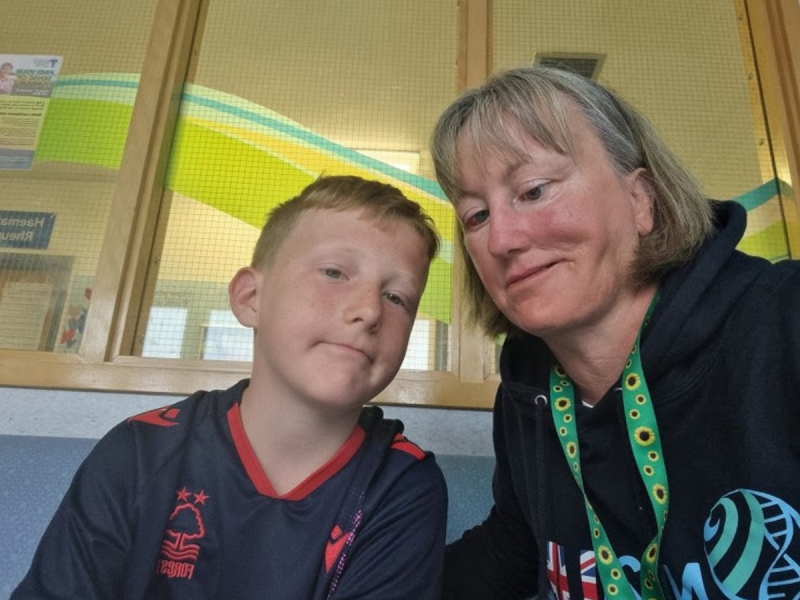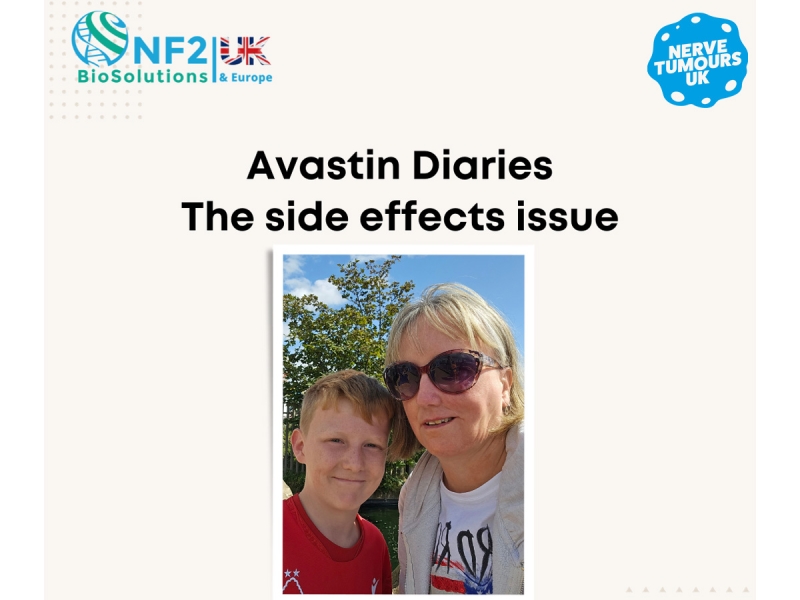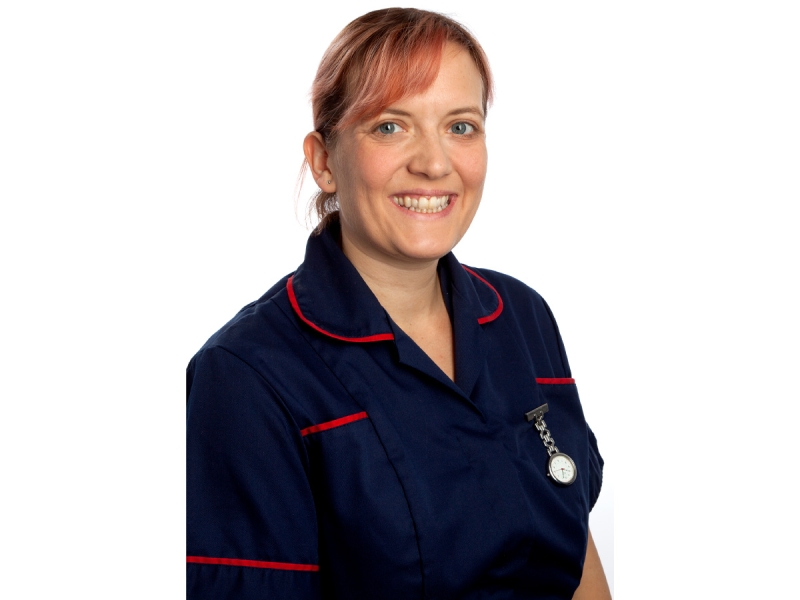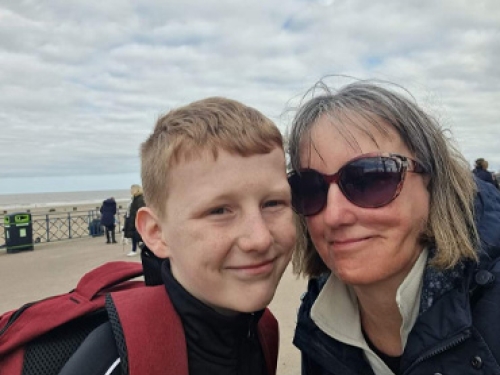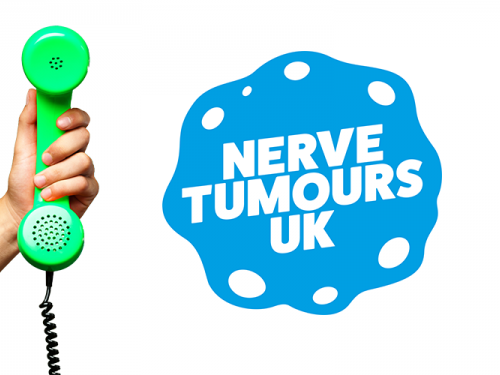Avastin Side Effects
04 December 2023
Over the last few months, you will have seen that we were working with Jo Ward, who is the Chief Operations Officer at NF2 BioSolutions UK & Europe, to highlight her son Oscar's Avastin treatment journey. Both Jo and her youngest son Oscar have NF2.
One year on
I wanted to write a few words from both of us.
I asked Oscar what his expectations were before we started Avastin and he said “I hoped it was going to work”.
He is now “Glad that it's working”. This probably sums it up.
From my point of view, the expectation was that we “hoped” it was going to do what it needed to do and looking back, I too “am glad” it's working.
I know how lucky we are that Avastin is doing what it needs to do, I feel that we have been given some time while things are stable and for that I am grateful. I know of others whose journey has been completely different.
It’s not been an entirely easy ride though and the overwhelming take is cannulation problems, that has been our biggest sticking point in all this & the fact we won’t choose a port due to prioritising Oscar's well-being and his sports, that just add to keeping him emotionally well which has been so important to him & us.
Granted also it takes a bit of planning at times and every 2 weeks for infusions is a hard slog and can at times upset the daily diary of family life, but it’s amazing how quickly you get used to it.
But remember that very first post I wrote, organisation and support are very key to things going well.
In her Avastin Diaries blog this summer, the issue of side effects came up.
Therefore, realising that Avastin side effects would likely impact many others taking Avastin, we decided to investigate the matter further.
This article includes personal experiences collated by Jo, both about her son, and from others, which we hope will be a useful source of information for anyone taking Avastin.
At the end of the article, Juliette Buttimore, Lead Clinical Nurse Specialist for NF2, based at Addenbrooke's Hospital, gives some medical input. We have worked closely with Juliette for many years.
Our own Specialist NF Nurses are able to provide relevant information to patients, carers and other allied healthcare professionals about NF2, and are able to provide support in school or in the workplace, while patients are being treated with Avastin.
Avastin: “the side effects” - Jo Ward
"I hope you have all been enjoying the Avastin blog and our journey with it, it certainly is giving us some ups and downs."
"I wanted to take a bit of a break from our journey though and look at others on their journey and in particular how they cope with some of the side effects.
I am looking back on our experience on Avastin if you have been reading my blog. Whilst Avastin is not my ultimate first choice of treatment (and with NF2 we have very little choice), for the time we have been on it, it is doing what it is meant be doing by stabilizing the tumours Oscar has.
It has been a long road to get us to this point and I am fully aware the road is even longer before we will be able to swap to anything alternative and we do not relish the option of surgery – because this too comes with long term effects and complications.
Hopefully we have shown that a good support network is vital in navigating this for children, getting professional NHS services involved like the community nurse, an outreach nurse to co-ordinate things etc and informing your child's school will all help with the challenges you may face. It is important that health and wellbeing is considered for your child so that they do not feel overwhelmed, there are many services that are accessible through your oncology department at the hospital, or that your outreach nurse can signpost you to. It is great for them to be able to meet other children experiencing the similar things, to know they are not alone.
Every 2 weeks for the last 6 months we have headed to the oncology dept for Avastin, our most challenging thing on EVERY visit is cannulation. We have had many ups and downs with treatment. Sometimes we have been in the department for 2 hours, other times 5-6 hours. But through it all, Oscar has tolerated Avastin well with relatively few side effects and for that we are grateful.
From all of the reading over the years, we all know NF2 affects everyone differently and I think that’s also true with side effects from Avastin infusions.
I think it is also true of a quote I saw: 'Not everyone will get all side effects and not all side effects will affect everyone'."
Disclaimer: I am not medically qualified, this information is not medically endorsed, it is just my observations and contributions from others who are on Avastin, or their family members are or have been.
I have taken this information straight from the leaflet we were given from Addenbrooke's before we started Avastin:
As with all medications, there is a risk that you may experience some side effects during treatment, and every person's reaction to a drug is different. The side effects listed below will not affect everyone who has Bevacizumab, as every person’s reaction can be different.
Acute infusion-related reactions: These reactions may occur during infusion, or for up to 24 hours afterwards. These are usually mild, but please tell the doctor or nurse if you experience flu-like symptoms, a rash, a feeling of swelling in the lips, tongue, or throat, any difficulty breathing and back, stomach or chest pain as these could be signs of an allergic reaction to the drug.
There are other side effects which may occur days or weeks later. The most common side effects of Bevacizumab are:
- Tiredness
- Feeling sick
- Headaches
- Bleeding
- High blood pressure
- Sore mouth, mouth ulcers or altered taste
- Delayed wound healing
- Constipation or diarrhoea
- Loss of appetite
- Blood clots
- Lowered resistance to infection
- Changes in the way your heart works
- Changes in the way your kidneys work
- Pain around the area of the tumour
Most of these side effects can be controlled so please discuss any side effects that you are having with the doctors or the nurse practitioner. There are other rare side effects not listed in this leaflet that are very unlikely to affect you. However, it may be that you experience side effects not initially predicted or indicated on this form. If this is the case, please discuss this with the staff treating you.
"As this blog is about our journey, I wanted to share with you our school health care plan for Avastin side effects that our Outreach nurse, Carly came up with for our multi-agency meeting."
If Oscar shows signs of these side effects, this is the course of action the school needs to take:
- Anaemia – school are to contact parents
- Tiredness – flexibility on attendance, medical pass to allow time out sessions
- Sickness/Nausea – medication & allow time out
- Itchy/Dry skin – allow him to put on lotions
- Renal impact – ensure free access to drinks & toilet pass, drink as much as possible
- Peripheral neuropathy – more frequents breaks esp on school trips. Pain meds
- Emotional health – access to pastoral support in school
Other people’s experiences
"I would like to thank everyone who kindly shared details of their side effects with me for this blog, these are written as they were written to me, I have not changed any details.
Onto some “real life” side effect reviews from other who kindly shared information about how they are impacted by Avastin."
H: “Mostly after I get it I feel quite tired and then quite sick. My nose gets sore and then bleeds sometimes. I tend to get most of the side effects unfortunately (I've always had a little sensitive body! Haha). The worst one of course was I noticed my voice was changing and I sounded very husky and I had to clear my throat constantly. After months of asking the Dr's was this caused by Avastin they eventually realised it was the cause. Avastin caused the muscle that keeps your vocal cords thick and touching when you talk, to become necrotic and isn't working for me. They've told me my voice won't be the same now again and that it's caused permanent damage. It's affected every aspect of my life and has been the worst thing I've dealt with to date. Never mind people constantly telling me to drink honey and lemon it's every asking me if I've lost my voice/got laryngitis etc etc. It's affected my social life and my working life. I'm trying to be more positive about it these days and try accepting what's happened. I hate Avastin, I pray that a better alternative will come for those of us with NF2.”
“It is horrible I think it's affected my heart too tbh because I struggle going upstairs and my ecg always come back as strange. It is a horrid drug I know it helps too but the side effects are worse then the help for me”
J: “The hardest part of Avastin for me is not being as energetic as I would like to be for my little girl she is at the age where she wants to play which I love but after Avastin I am tired (well more tired then normal looking after a toddler.)Then I have found I have days where I get really nasty migraines and regular UTIs which usually result in antibiotics. I obviously struggle and again I spend most days resting”
M: “I was on avastin for like 8 years. Great drug. I got it every two weeks at 10 mg/kg. I was always tired after avastin so I would get it in the afternoon and take the rest of the day to myself to relax and recover. I eventually started leaking protein in my urine which is a common side effect of avastin and got pulled off of it to protect my kidneys. I would suggest be kind to yourself and lots of water”
C: “My husband gets tired usually 2 days post treatment. He also gets blood clots that come from his nose when he blows it. We were told these are both common.”
S: "Side effects - I got very bad shortness of breath a few weeks into treatment, so they rushed me for a CT scan of the lungs to check for blood clots. Thankfully none, but I had to attend a lung clinic for tests, as it wasn't getting any better. They couldn't find anything of note, but I still struggle with it, ten years later. I get very bad coughing fits if I take a deep breath, or yawn, especially in the mornings.
The worst side effect was that I started hearing my pulse. Really loudly. At first, it would gradually subside throughout the day, but then it would just stay put, and keep getting worse. These days, it can get so loud that I can't hear what people are saying to me. And my hearing is bad enough as it is. If I press my hand against the left side of my neck, it subsides, or even disappears. I often need to do this just to hear. Comes back as soon as I let go. I've never had any explanation for this, whatsoever, but to be honest, follow-up after my treatment has been pretty dreadful, anyway. I begged my neurologist for help with it earlier this year, and she referred me for a CT scan of neck and cranial arteries, which I had in May, but even though I've been asking for results, I haven't heard a thing, so I've no idea. If you come across any other patients reporting the same thing, I'd love to know.
Forgetfulness, yes, definitely. I have trouble remembering stuff that I've read or watched, or that people have said to me. I also have concentration problems, and occasionally severe fatigue, though these things might also be from dealing with bad hearing and pain every day."
N: "So during avastin 2021. I had heart palpations I got sent for an echo. It showed right ventricular systolic dysfunction. I wasn't told I had this until I was pregnant they were going through my notes. Anyway echo today its still there but mild. Thing is I did not have any issues with this prior to avastin they compared to echos I had before avastin and nothing shows. So it's likely avastin has caused this dysfunction. Thankfully it's very mild and not causing me issues. But annoyed avastin can be a horrible drug x."
B: "Hair thinning (Avastin is not the type of chemotherapy at the dose NF2ers have it to cause hair loss, however several people do mention hair thinning or fuzziness)."
O: "My son has suffered from a change to his emotions and its been really quite overwhelming for him. He also forgets things much more often now than he used to and this has affected how he has been treated in school."
Anonymous
- Extreme fatigue, neuropathy & kidney disease
- Mouth sores, constant thirst, dry eyes, nosebleeds, abdominal pain, nausea
- Dry sinuses, dry skin, dry throat
- Impaired wound healing, headaches, changes to taste (spices), loss of appetite
- High blood pressure, hair loss/thinning, acne, joint pain, anaemia
Effects in females
- Premature ovarian failure
- Irregular menstrual cycle
"So there are certainly many things to consider about committing to Avastin – and even if it does the job we need it to, this can come with many risks.
You should talk to your NF2 team about side effects or any worries you might have about your treatments.
I really wanted to highlight here some of the things that people go through while on Avastin, but obviously we need to remember that many of these side effects are very few and far between for some people, while others experience more serious side effects. Everyone is different & reacts differently. And it proves that really what we need is better treatments and treatments that are kinder to our body & more research."
Jo Ward
Medical and General Advice from Juliette Buttimore
Lead CNS – Skull base & NF2 (ENT) Midlands/East Cambridge University Hospital / Addenbrooke's
Bevacizumab – also known by the brand name Avastin
“Bevacizumab was first introduced in the UK in 2010, after some research in the USA in 2009 showed benefit for stabilising growing vestibular schwannomas (tumours on the balance nerve). In a few cases, it also helped to stabilise or improve hearing. Its use in NF2 is still controlled within the NF2 service and it can only be given to people who meet certain criteria e.g. fast growth of a schwannoma or cystic ependymoma, or due to a particular threat to neurological function. The criteria for use are in place, as we know that it does not help manage all tumours in NF2, e.g. it does not prevent the growth of meningiomas, and is not of benefit for tumours that are growing slowly.
Bevacizumab is a drug that was originally used to treat some kinds of cancer. The reason that we believe it is effective is due to its ability to stop the development of new blood vessels in tumours. This means that the tumour cannot access the oxygen and nutrient supply it needs to keep growing. It does not stop blood vessels from being formed in other parts of your body, as it works specifically on a chemical that is secreted by some tumour cells, in a way that is similar to how your antibodies know how to attack certain kinds of infection.
Bevacizumab is generally very well tolerated and the majority of people treated in the UK do not have significant side effects. Data is collected from all the NF2 teams so that we can look at this in detail and it is reviewed by all the NF2 teams together, at each national clinical meeting including a review of cases where there was an adverse event, or a serious adverse event that might be related to bevacizumab therapy.
Acute side effects are rarely seen, but if they are, may suggest an allergy to the drug (for example, a rash or swelling at the time the drug is given, or shortly after).
Other side effects may occur after several days or weeks, or may become known after you have been on treatment for a long time. The most common of these are fatigue (tiredness), high blood pressure, mouth ulcers, and a deterioration in how your kidneys function. We often see that menstruation is affected with heavy or irregular periods, and ovarian function can be altered. We also sometimes see nausea, headaches, a change in taste, constipation/diarrhoea, slow wound healing, unexpected bleeding (for example in your bowel or from your nose), blood clots, a change in how your heart works or pain at the site of the tumour. If you experience these, then you will need to discuss with your clinical team whether it is safe to continue, although the majority of side effects can be treated.
Very occasionally, someone will experience a serious side effect, such as a haemorrhage, a gastrointestinal perforation or more significant changes in how your heart works such as an irregular heart rhythm. We know that people on bevacizumab take longer to heal from large wounds, and it is for this reason we would ask people to stop bevacizumab 28 days before and after any elective surgery. We also do not have much information on how bevacizumab affects foetal development, and for this reason we advise that pregnancy is avoided until six months after the last bevacizumab infusion.
The list of the above side effects is not exhaustive, and if you do experience other side effects on treatment, then you should discuss them with your treating team so that they can manage you safely and appropriately.”
Juliette Buttimore

